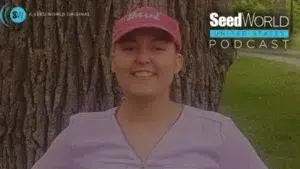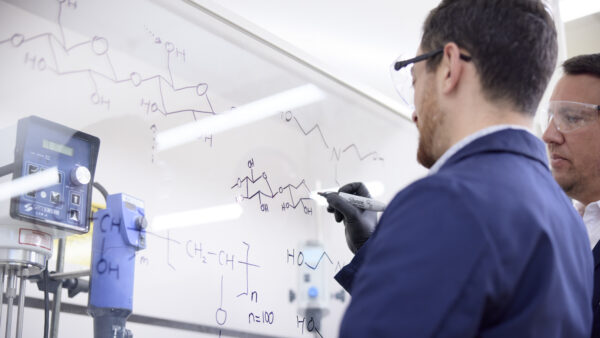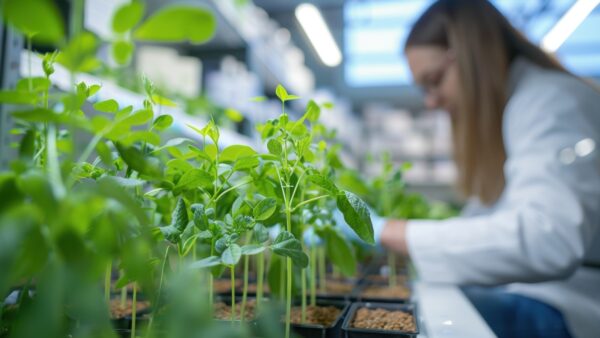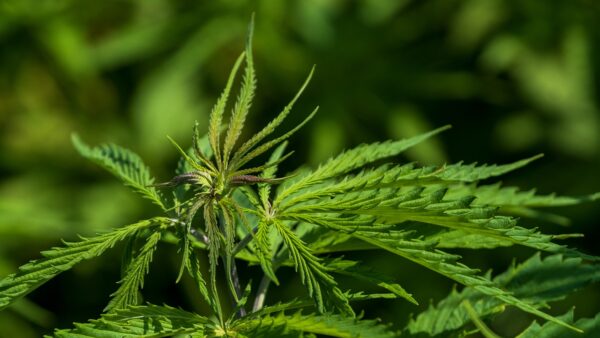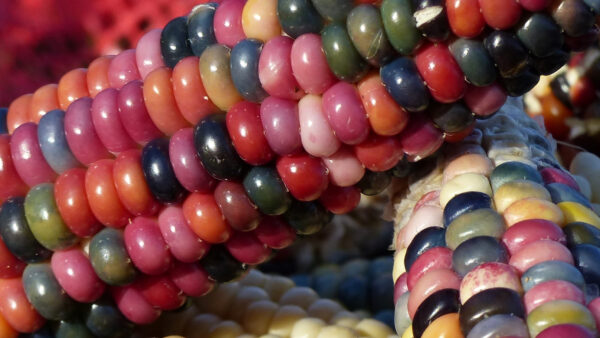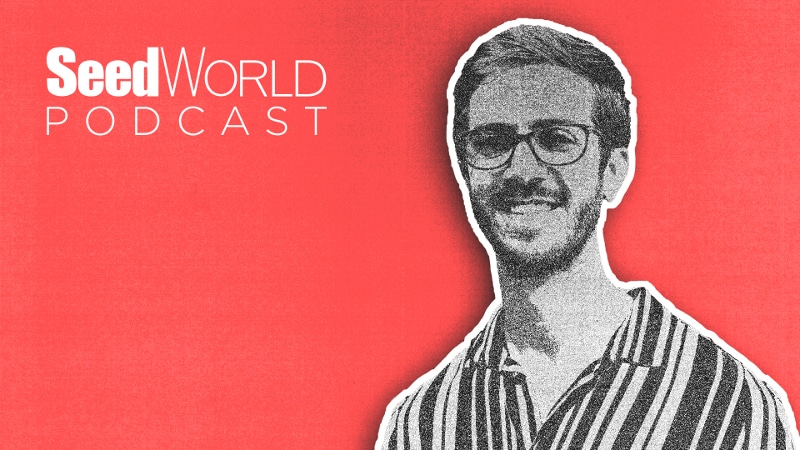
Growing up on a farm isn’t all its cracked up to be. That’s exactly why Sam McDonald decided to get into plant breeding.
Sam McDonald is a Ph.D candidate at the University of Georgia. He works in the soybean breeding and Genetics Lab led by Dr. Zenglu Li. He received his B.S. from the University of Missouri in plant sciences with an emphasis in Breeding, Biology, and Biotechnology in 2017 and completed two internships with Pioneer (now Corteva) during this time.
Sam’s doctoral research focuses on the identification of resistance genes to the fungal disease frogeye leaf spot using QTL mapping and GWAS approaches in addition to genome sequencing and gene expression. He sat down with Marc Zienkiewicz in Ames, Iowa, last month to talk about his work and how some of the less desirable parts of growing up on a farm made him want to be in plant science.
“A lot of times people are surprised to hear there are soybeans grown in Georgia.There’s not a lot, just a little over 100,000 acres. But soybeans have been grown in Georgia longer than any other state in America, actually soybeans were brought in through Savannah. But because Georgia has a really hot and humid climate, there’s a lot of issues with growing soybeans in Georgia, one of those being diseases,” he says.
“Frogeye leaf spot has been in the US for about 100 years, when it was first discovered here. But for a long time, soybeans couldn’t be grown very well in the South because of diseases like this. So in the 80s, there was a lot of research done for finding resistance to this disease, but there hasn’t been much character characterization of it on a molecular level. We know that certain genotypes or certain lines of soybeans have this resistance. We don’t know how it works very well. My research is focused on characterizing this resistance that we have, so that we can continue to use it better in the future.”



